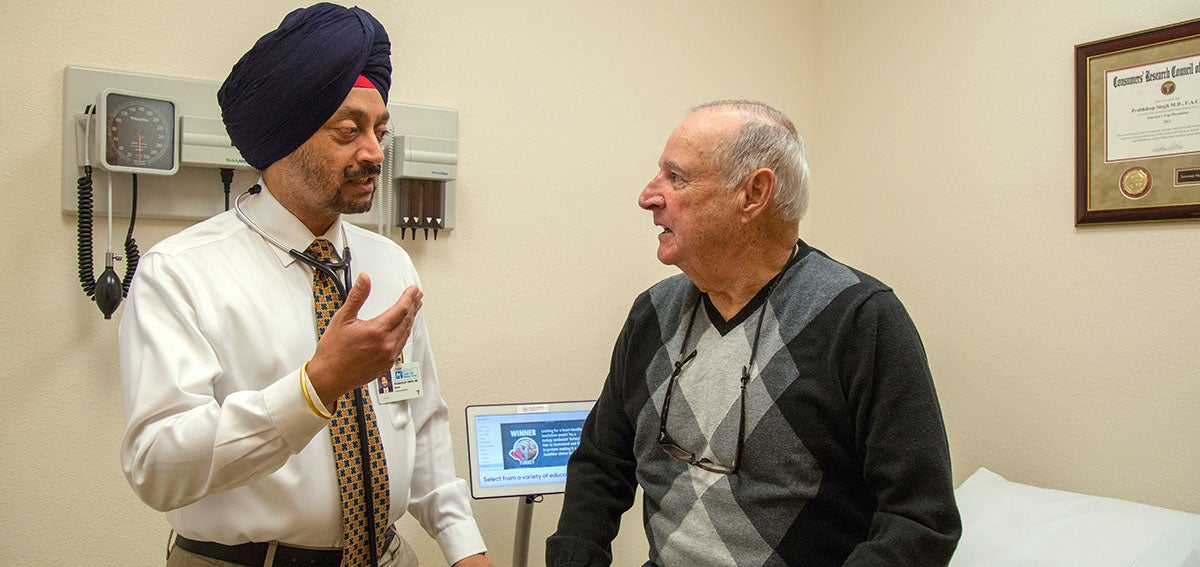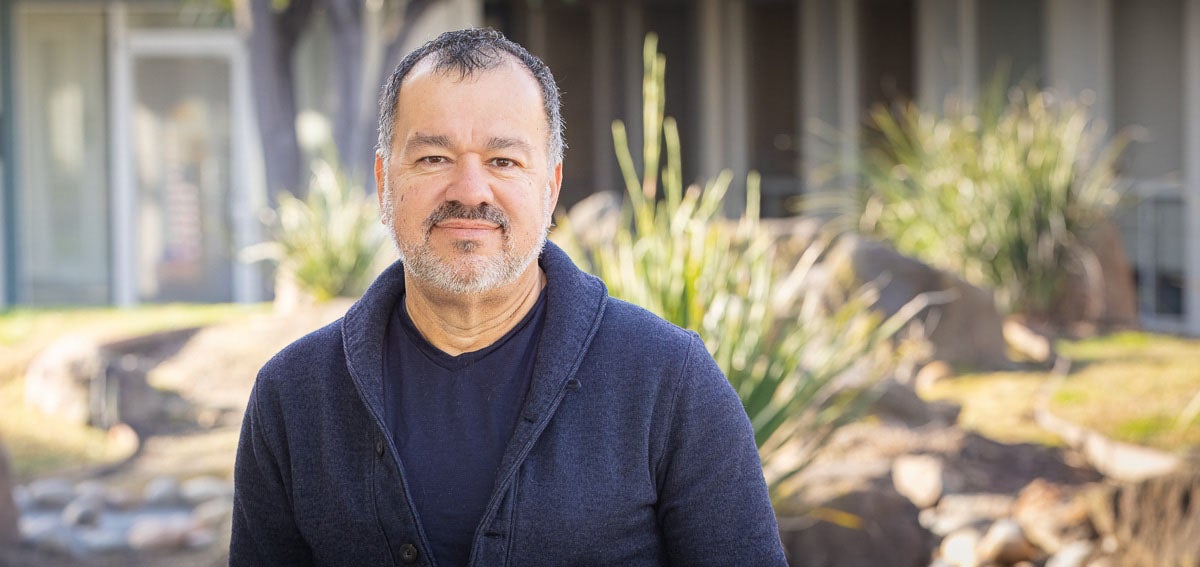
Last year’s California Health Policy Survey had a groundbreaking finding regarding Californians’ attitudes about mental health. Making sure that people with mental health problems have access to treatment was Californians’ top health care priority, with almost 90% of respondents saying the issue was extremely or very important.
One of the best ways to get mental health treatment to those who need it most is to reach people in a place they already know: the primary care system. Many primary care practices in the state are not equipped to address their patients’ mental health, but that could change with a proven approach called the collaborative care model.
In dozens of rigorous studies, collaborative care has been shown to improve both physical and mental health outcomes for patients with depression and anxiety. The model is simple: A primary care team is joined by a behavioral health care manager, who interacts directly with patients, and a consulting psychiatrist, who offers providers specialty expertise. Together, the team provides behavioral health care and monitors patients’ responses to evidence-based treatments like coaching, talk therapy, and medications.
Until now, collaborative care mainly has been deployed on-site, with behavioral care managers and psychiatrists colocating at primary care practices. That tends to limit its ability to expand to practices that are small or in areas with significant shortages of mental health providers. If there were a way to use the model remotely, it could scale more rapidly. That’s why the CHCF Innovation Fund and the Alliance Healthcare Foundation (which focuses on San Diego and Imperial Counties) are investing in start-up Concert Health.
Concert will use the investment to expand in California, where it already serves Medicare and commercial patients in a handful of practices. Spurred by Medi-Cal’s recent decision to begin reimbursing for collaborative care in 2020, those expansion efforts will focus on managed care plans and practices serving Medi-Cal enrollees, starting in Imperial County.
Flipping a Switch to Collaborate
Concert’s unique approach to scalable collaborative care involves employing, training, and supervising a network of remote licensed behavioral care managers and psychiatric consultants, who are available by phone or video.
The remote network makes collaborative care accessible to small and rural practices, many of which lack the patient volume and the supply of local specialists that make on-site collaborative care teams feasible. In turn, patients in those practices gain access to mental health specialists without needing to leave their primary care system.

Concert’s solution also has appeal for larger practices, whose leaders are excited to improve the mental health care they offer without significantly increasing their operational burden, according to Concert CEO Spencer Hutchins.
“We let primary care practices essentially flip a switch and start doing collaborative care,” said Hutchins. “When you make something that easy, you greatly increase the chances that providers adopt it — and ultimately improve their patients’ access to mental health care.”
Concert’s customers across the country range from independent primary care practices of five or six health professionals to practices with hundreds of clinicians, including Women’s Health USA, the nation’s largest ob/gyn group.
Closing the Loop
Concert’s patient engagements start when a primary care provider in one of their customers’ practices identifies a patient with mental health needs. Unlike a typical referral to an outside specialist, in which the burden to connect with the specialist falls on the patient, Concert’s care manager follows up immediately with the patient and schedules a phone or video chat to discuss their needs and develop a care plan.
“A provider new to Concert made a referral to our care manager one day and sat down the very next day to find a full assessment and care plan in his electronic medical record,” recalled Virna Little, PsyD, LCSW, Concert’s chief operating officer. “He told me it was the first time he had ever found out the outcome of a behavioral health referral he had made — and he’s been practicing for decades.”
For some patients, a care plan might center around talk therapy. Other plans might involve starting a new medication and determining the right dose. Concert’s care managers implement care plans and monitor patients’ progress, with ongoing input from the primary care provider.
Engaged and Evidence-Based
Care managers also meet weekly with a Concert staff psychiatric consultant to review the cases of patients who are not getting better. Recommendations are delivered directly to the primary care provider and added to the electronic health record. Research shows remote collaborative care is as effective or more effective than collaborative care delivered in person.
Concert’s average engagement with a patient lasts about six months, said Little. “Engagement” is often where primary care providers fall short on mental health care. Plenty of them start patients on medications — 79% of US prescriptions for antidepressants come from primary care providers — but far fewer follow up on patients’ progress, symptoms, or side effects. Compared to those receiving usual primary care, patients on antidepressants receiving collaborative care show significantly better medication adherence, care satisfaction, and symptom improvement.
“When a patient has a high A1c or high cholesterol and a doctor prescribes a medication, they meticulously follow up with blood tests to see if the drug is working,” said Little. “That is sadly not the case for patients experiencing anxiety and depression. Countless patients have been on psychiatric drugs for years without anyone checking to ensure they are progressing toward their treatment goals.”
Prospects for Collaborative Care in California
The main barriers to Concert’s expansion in California are providers’ lack of awareness that it’s available and confusion about reimbursement, Hutchins said. “The collaborative care model was born in a kind of academic bubble. Lots of people in that world think it’s a no-brainer, but outside of some early adopters, like Federally Qualified Health Centers, the average physician has still never heard of it,” Hutchins said.
Many primary care practitioners assume they can’t be reimbursed for collaborative care, but Medicare does cover it, and in California, most commercial insurers do too. Medi-Cal had been the missing piece of the reimbursement puzzle until the California Department of Health Care Services recently announced it will adopt collaborative care billing codes in 2020, with details yet to come.
Concert has had success working with Medicaid plans in other states, including New York and Arizona, and it aims to do the same in California. Activation of the Medi-Cal reimbursement codes is critical, Hutchins said. “Providers want seamless solutions they can use for every patient that walks into their office without having to check the details of their insurance,” he said.
To help more primary care practices serving Medi-Cal enrollees adopt remote collaborative care, CHCF is offering implementation support. CHCF is also funding a third-party evaluation to assess the impact of Concert’s remote collaborative care model on total cost of care, patient and provider satisfaction, and mental health outcomes among Medi-Cal patients. With only 37% of adult Californians reporting they received care for their mental illness, there is vast room for improvement.
To learn more about California’s behavioral health care needs and how to address them, visit CHCF’s 2018 Mental Health Almanac.
Authors & Contributors

Leslie Walker
Leslie Walker is a senior producer for Tradeoffs, a podcast exploring the confusing, costly, and often counterintuitive US health care system. She formerly served as communications consultant for the CHCF Innovation Fund. Prior to working with CHCF, Leslie led communications for the UCSF Bixby Center for Global Reproductive Health. Before that, she was a senior manager at SIRUM, a social enterprise start-up that connects organizations with surplus medications to patients in need. Earlier, she was a senior account executive at Fenton, a leading social-change communications firm, where she focused on media relations and message development for health care foundations and nonprofits.
Leslie received a bachelor’s degree in political science from Brown University.




